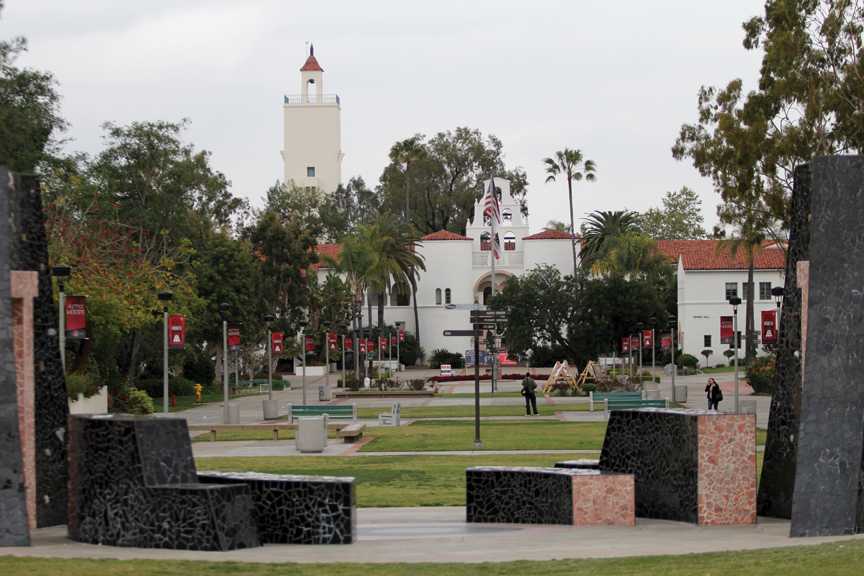San Diego State was ranked number one for the third time for having the most students with disabilities starting careers among California colleges.
The most recent report came out earlier this year and ranked SDSU first among the nine other universities in California participating in the WorkAbility IV program. The program is designed to provide students and alumni with disabilities resources that help to enter the workforce, meet employment goals and learn to live life independently.
“A lot of it has to do with the fact that it is so team-oriented,” WorkAbility IV coordinator, Jeanette Richards, said. “We collaborate with three programs to really get the resources and the services to the students and tailor them to meet the students’ needs because that’s what’s really pivotal towards making them successful.”
WorkAbility IV is partnered with Career Services, Student Disability Services and a state-run agency called the Department of Rehabilitation. These centers work together to help students find and retain jobs after graduation.
Outside partnerships such as Qualcomm Stadium provide a disability-mentoring day each fall for students to learn about potential jobs.
Richards said going to school to complete a degree is just one step toward finding a job. Career Services helps students with disabilities find internships and write resumes while offering career counseling and invitations to events. She said it really tries to individualize services for each person.
“We don’t see the person as a disability. We look at them as a person with their own goals and their own strengths,” Richards said. “We put the person first and we look at what their goals and abilities are. We presume competence, we presume abilities.”
Richards said the disabled community is a diverse population and, depending on the disability, students can face very difficult challenges within the workforce. Numbers of unemployed people suffering from disabilities are much higher than the general population, because of numerous limitations with employment. The university says it is committed to changing this.
Career Services tries to match an individual with a career corresponding to his or her goals and abilities.
“Someone who’s losing his or her vision probably wouldn’t be appropriate to go find a job as a truck driver,” Richards said. “It’s a silly, extreme example because that has never happened here.”
There are currently 978 SDSU students who self-identify with a disability on campus. That is 3.2% of the school’s population. WorkAbility IV served 271 clients during the previous academic year. Fifty students were successfully placed into career-related employment.
Director of Student Disability Services Mary Shojai said, to many people, 50 is not enough.
Shojai said disabled people are underemployed or unemployed in proportions greater than any other underrepresented group in the United States. Students who get a career-related job are turning into taxpayers instead of individuals who are only receiving disability payments.
“The part that’s really good is the 50 people were in career-related jobs and quite a few of them went into some kind of federal employment,” Shojai said. “Federal agencies are actively recruiting people with disabilities that have college degrees.”
Students registered with a disability are provided test accommodations, books converted into readable DVDs and other benefits from SDSU Disability Services that assist students in being successful in school.
Shojai said a problem with providing these services is there are many students who do not document their disabilities with the university. In this case, the university is unable to provide its resources.
To be a part of WorkAbility IV, the individual has to be an SDSU student or recent graduate with a career goal, as well as a client at the Department of Rehabilitation.
Once students secure a job, they have to keep it for at least 90 days to be considered successful in the WorkAbility IV program.
The Department of Rehabilitation also provides its services to SDSU students with federal employment advising, including interview clothing for the clients, course books, training and various financial needs students may have.
SDSU has had many counselors with experience working with disabilities, many of them from the rehabilitation-counseling master’s program offered on campus. They are knowledgeable about academic preparation and know ways to help students find a job.
SDSU Vice President for Student Affairs Dr. James Kitchen said, “Any time we can help someone who, in my opinion, is sometimes the most discriminated in the workforce … I think it is a wonderful thing.”
More information about the Workability IV program can be found by contacting SDSU Disability Services and Career Services.










